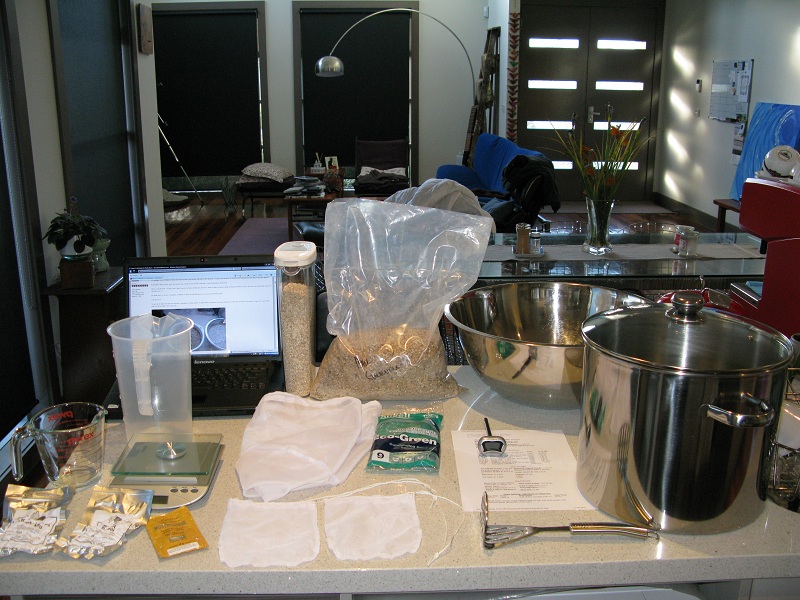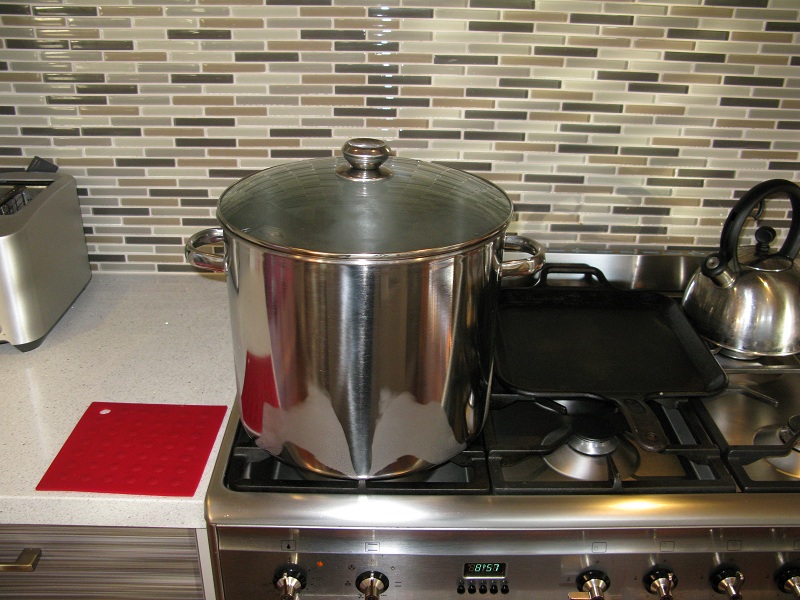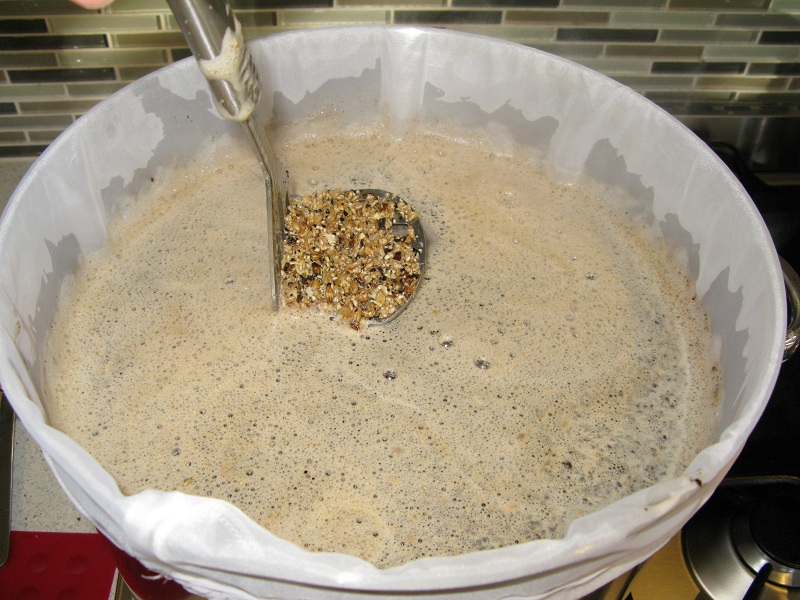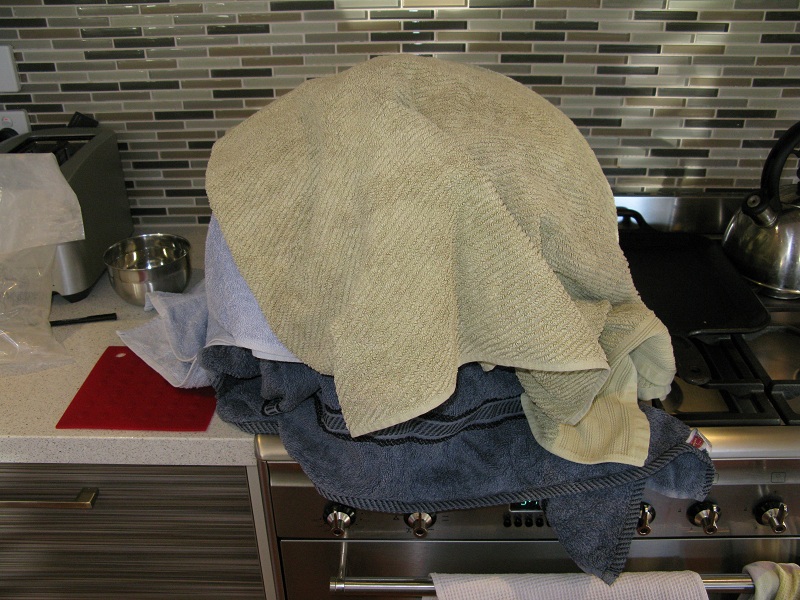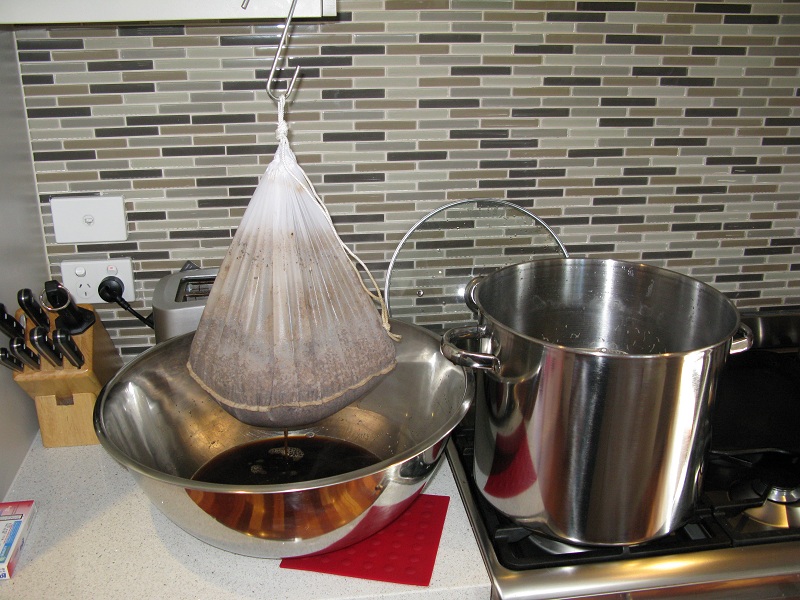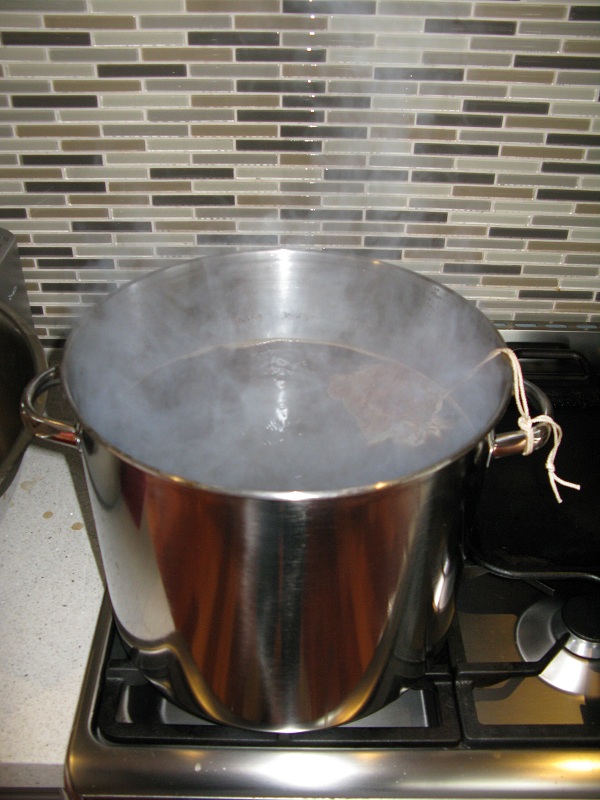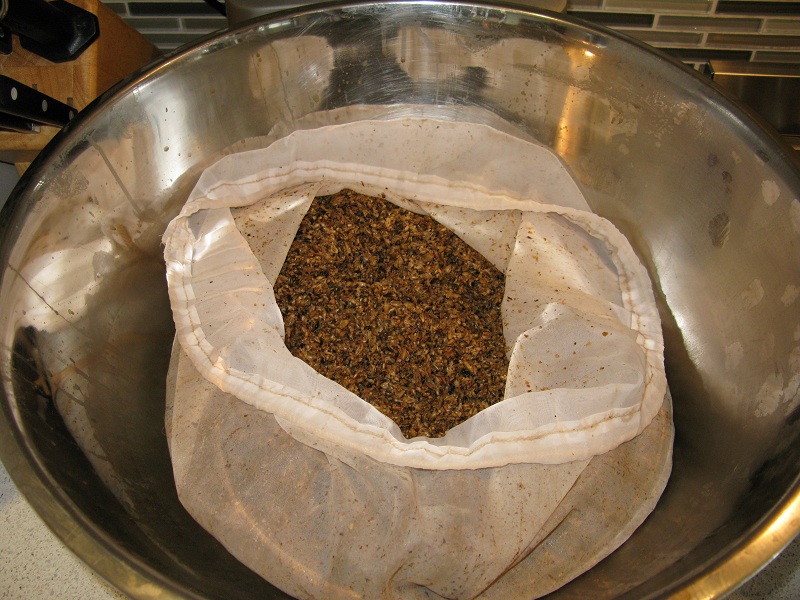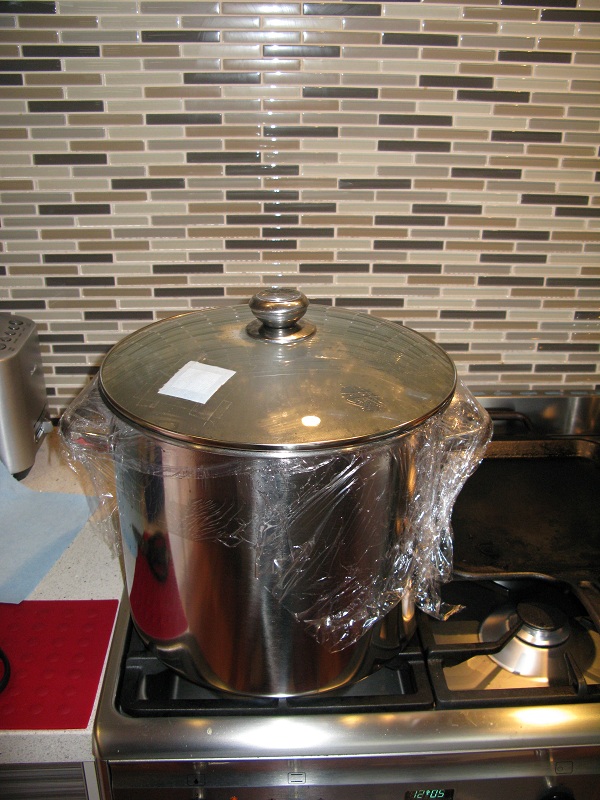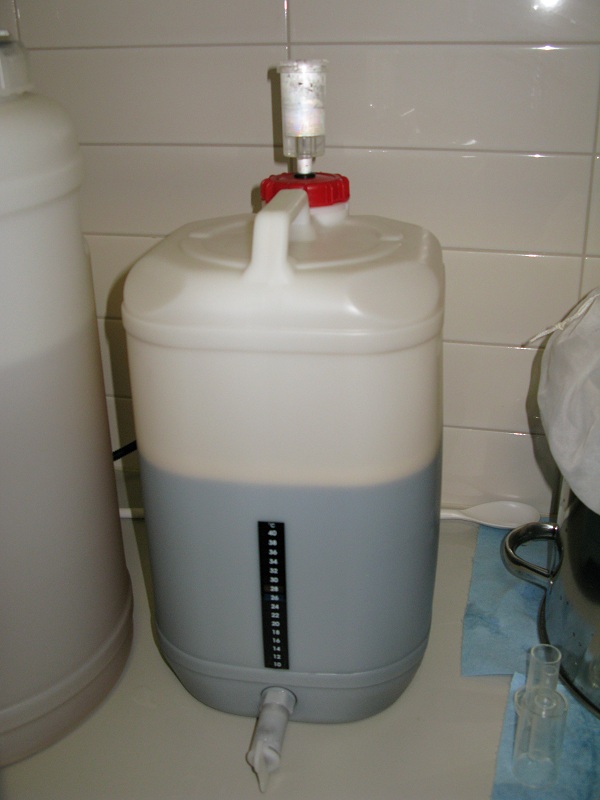That's the one, 16.5 litres, not 17 ! cheeky buggers
how much yield can you get out of your set up? Bottled my first attempt yesterday, I got 10-1/2 750ml bottles, bit dissapointed its not even a fortnight's supply at one a night.
Think i need to look at doing overstrength boils and then diluting, or using partials. what do you do?
Yeah, it is disappointing when the batch size is fairly small. But you can do bigger batches with that stockpot and
this method, it has the essentials, but I'll add a couple of fairly trivial steps describing what I do as well. As Nick suggests, a spanking great big new pot would be nice, I'll tell you how to get by until then though.
Basically you can just largely ignore what your pot/kettle volume actual is (well to some extent, I'm just assuming that you want to make a batch bigger than your kettle volume) and just mash in enough grain for a full batch, say 4.5kg. The pot needs to be full to the brim for mashing, not a calculated volume and we'll sparge it. A 4kg grainbill should be OK in that slightly smaller pot though.
Mash: Doing this is easy, fill with water to about 3/4, raise to strike temp (desired mashing temp + 4C works for me), remove a couple of litres temporarily, put the bag in & add the grain, use the couple of litres of water to adjust the temp (so boil it for raising or just add cold for lowering), but at the end of it you want the pot full to the brim. Mash as per usual, I like fairly dry beers so I mash low and long, but well before the end of the mash, put on to boil about 1/3 of the volume of the pot of water, this will be used to sparge and will be just off the boil. Another smaller pot is useful to do this but a plastic bucket is fine too.
Sparge: Lift & drain the bag briefly, put the kettle on the heat for the boil, and slip the bag into the sparge pot/ bucket, open the bag up and stir it well. Lift after 15 minutes, drain thoroughly. Adding a pinch of citric acid to the sparge seems to help (but I know my source water is alkaline).
Boil: So when we lifted the bag it leaves the pot less than half full, not very much liquor, but it is quite concentrated (often around 1.080). We'll add the sparge liquor to the boil and if it is still strong (say 1.040), I'll actually re- sparge it. There may be too much sparge liquor, that's good because during the boil there will be evaporation losses, adding more sparge liquor will replace that which is lost. Make sure it all gets added before 10 minutes from the boil end, also increasing the heat when adding it gradually will mean the boil isn't paused by a big, cooler addition. Any surplus sparge goes into yeast starters.
Wort cooling: I often chill the kettle in the laundry sink with a couple of changes of cold water over a few hours, it is sensible to re-use some of the heated water for cleaning down. Once it is cooled to pitching temp, I'll pour it through a sieve into the fermenter, add the dilution water and yeast. Done. Minimising the amount of trub left in the kettle is probably the best way to ensure you're getting the best possible efficiency, I'll normally lose about a litre but again, use that for starters.
Suggest measuring the liquor density and volume and at each step of the way to see how it is progressing*, so first runnings, first sparge, second sparge, I'll also measure total pre- boil and of course post- boil SG. I'll dilute it at pitching, work out just how much by this formula:
Diluted Volume = Actual SG/ Target SG * Actual Volume
(SGs such as 1.050 expressed as 50)
Hopefully it is around a fermenter- full, you can also help things by choosing a sugar friendly style, eg. I use 10% of the grainbill as sugar in my ESBs, that's best added at pitching (dissolve it in hot water, use cold for the dilution, just keep it all sanitary).
Hops utilisation in the boil begins to suffer at >1.050, I'll increase it in subsequent batches if it is found wanting, initially I wouldn't be overly concerned though. 10% more hops per 0.010 over 1.050 is a rough rule of thumb.
BTW, if there's any concerns about whether this actually works, every week I do 20- 25L batches of ESB with a 4.6kg grain bill in my 19L stockpot on the kitchen stove.
* This method has lots of things to measure, but they're not really that important, just novel. The critical parameters are post- boil and target SGs, plus volume, the first sparge SG will help you decide if it needs redoing. The inwards volume measurements don't need to be precise, that's why I've used proportions like 1/3 and 3/4 etc.) and because we're diluting we have the scope to adjust as much or as little as need be to get to the target SG.
Sorry for the essay, hope this helps! :icon_cheers:





